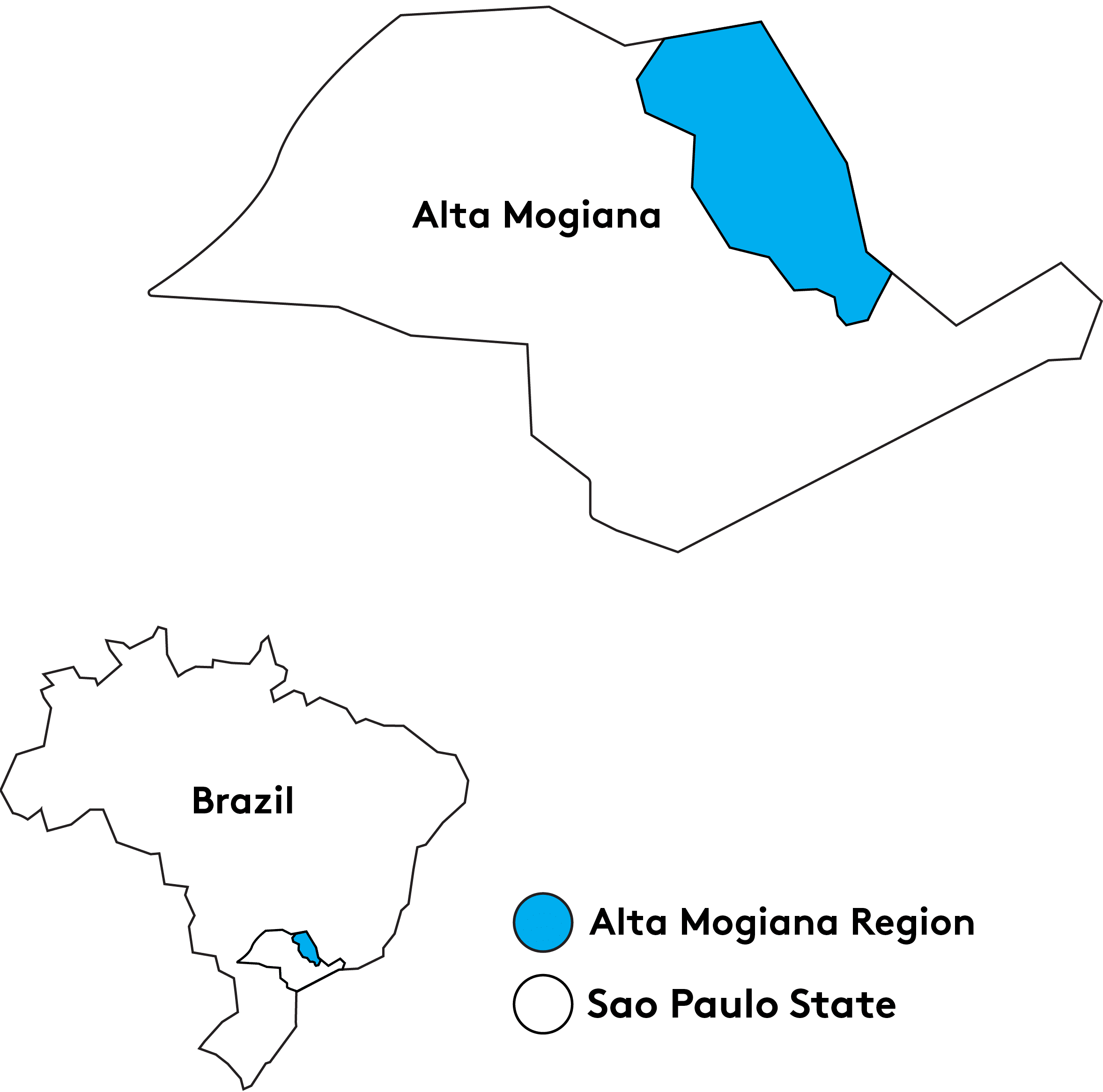Graziela Pereira Pestana de Castro is a coffee producer working in her family’s coffee business in Altinópolis, São Paulo, in the Alta Mogiana region of Brazil. She and her brothers, Patrícia and Augusto, are the sixth generation of rural farmers and third generation of coffee producers in the family, with the family’s coffee legacy beginning with their maternal grandmother, Diva. The passion for coffee was passed to Graziela’s father when he joined the family in the mid-1960s, discovering a love for the crop following his training as an engineer. The family worked for decades to establish their crops and acquire new properties to grow their production, and collectively they now oversee Fazenda Nove de Julho, Fazenda Campo Belo, Fazenda Cachoeirinha, and the family’s headquarters all in Altinópolis, as well as Fazenda Nova Era in the municipality of Monte Santo de Minas.
Before beginning her coffee career, Graziela worked as a pharmacist and carries a Masters in food technology. Her involvement in the family business began in 2015, as she tells us “The love for the land and for coffee growing has always existed, but in mid-2015, when I went to help the family implement the farm’s quality management and certification system, I came to know a new reality in coffee growing. The idea was to treat coffee production as food, and contribute to the family business and [bring myself} fulfillment after a professional career of 20 years in the quality area in various sectors of the food chain.”
Outside of coffee production, the family also has a roasting facility for their roasted coffee brand Pieta Cafe, which helps them to share their work from seed to cup directly with coffee drinkers locally. They also hold courses for producers and others in the industry to discuss the importance of quality in their production.
Fazenda Nove de Julho covers 138 hectares of land and is planted with 90 hectares of coffee at an average of 100 meters above sea level. Work at the farm balances quality with environmental care, with practices being implemented to work toward a regenerative agriculture system.
This lot of Arara underwent Natural processing. Arara is a natural cross between Obatã and Yellow Catuai discovered in 1988 in the Parana region of Brazil by an agronomist named Francisco Barbosa Lima. The trees are productive and resistant to both drought and leaf rust, making the variety attractive from an agronomic perspective as well as presenting tasty characteristics in the cup.
